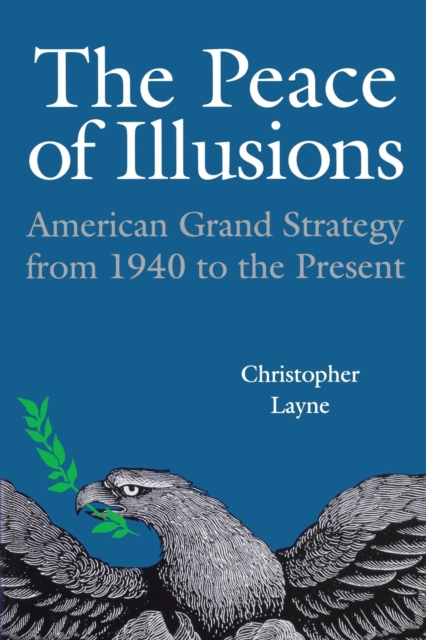The Peace of Illusions: American Grand Strategy from 1940 to the Present

The Peace of Illusions: American Grand Strategy from 1940 to the Present
In a provocative book about American hegemony, Christopher Layne outlines his belief that U.S. foreign policy has been consistent in its aims for more than sixty years and that the current Bush administration clings to mid-twentieth-century tactics--to no good effect. What should the nation's grand strategy look like for the next several decades? The end of the cold war profoundly and permanently altered the international landscape, yet we have seen no parallel change in the aims and shape of U.S. foreign policy. The Peace of Illusions intervenes in the ongoing debate about American grand strategy and the costs and benefits of "American empire." Layne urges the desirability of a strategy he calls "offshore balancing" rather than wield power to dominate other states, the U.S. government should engage in diplomacy to balance large states against one another. The United States should intervene, Layne asserts, only when another state threatens, regionally or locally, to destroy the established balance. Drawing on extensive archival research, Layne traces the form and aims of U.S. foreign policy since 1940, examining alternatives foregone and identifying the strategic aims of different administrations. His offshore-balancing notion, if put into practice with the goal of extending the "American Century," would be a sea change in current strategy. Layne has much to say about present-day governmental decision making, which he examines from the perspectives of both international relations theory and American diplomatic history.
PRP: 191.89 Lei
Acesta este Pretul Recomandat de Producator. Pretul de vanzare al produsului este afisat mai jos.
172.70Lei
172.70Lei
191.89 LeiIndisponibil
Descrierea produsului
In a provocative book about American hegemony, Christopher Layne outlines his belief that U.S. foreign policy has been consistent in its aims for more than sixty years and that the current Bush administration clings to mid-twentieth-century tactics--to no good effect. What should the nation's grand strategy look like for the next several decades? The end of the cold war profoundly and permanently altered the international landscape, yet we have seen no parallel change in the aims and shape of U.S. foreign policy. The Peace of Illusions intervenes in the ongoing debate about American grand strategy and the costs and benefits of "American empire." Layne urges the desirability of a strategy he calls "offshore balancing" rather than wield power to dominate other states, the U.S. government should engage in diplomacy to balance large states against one another. The United States should intervene, Layne asserts, only when another state threatens, regionally or locally, to destroy the established balance. Drawing on extensive archival research, Layne traces the form and aims of U.S. foreign policy since 1940, examining alternatives foregone and identifying the strategic aims of different administrations. His offshore-balancing notion, if put into practice with the goal of extending the "American Century," would be a sea change in current strategy. Layne has much to say about present-day governmental decision making, which he examines from the perspectives of both international relations theory and American diplomatic history.
Detaliile produsului









